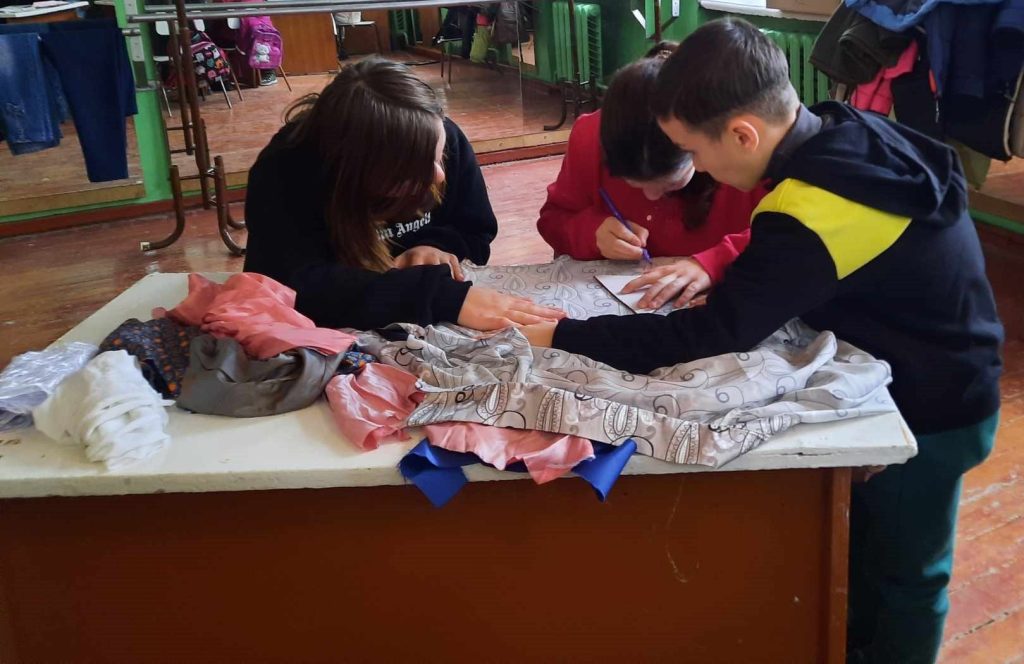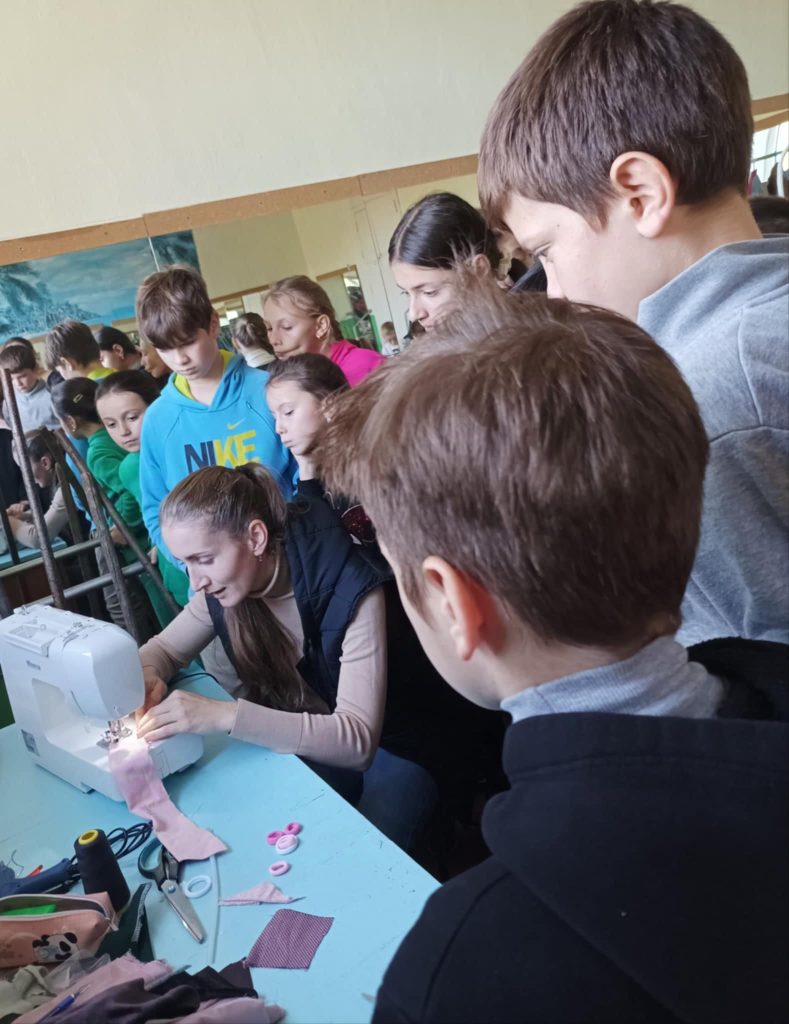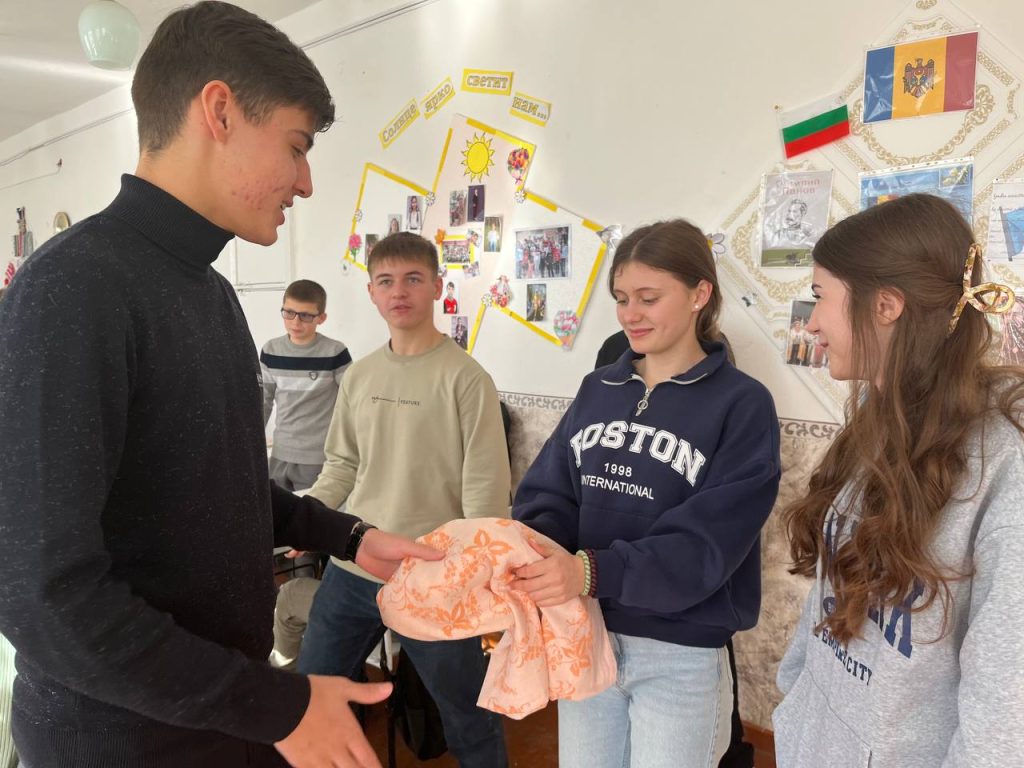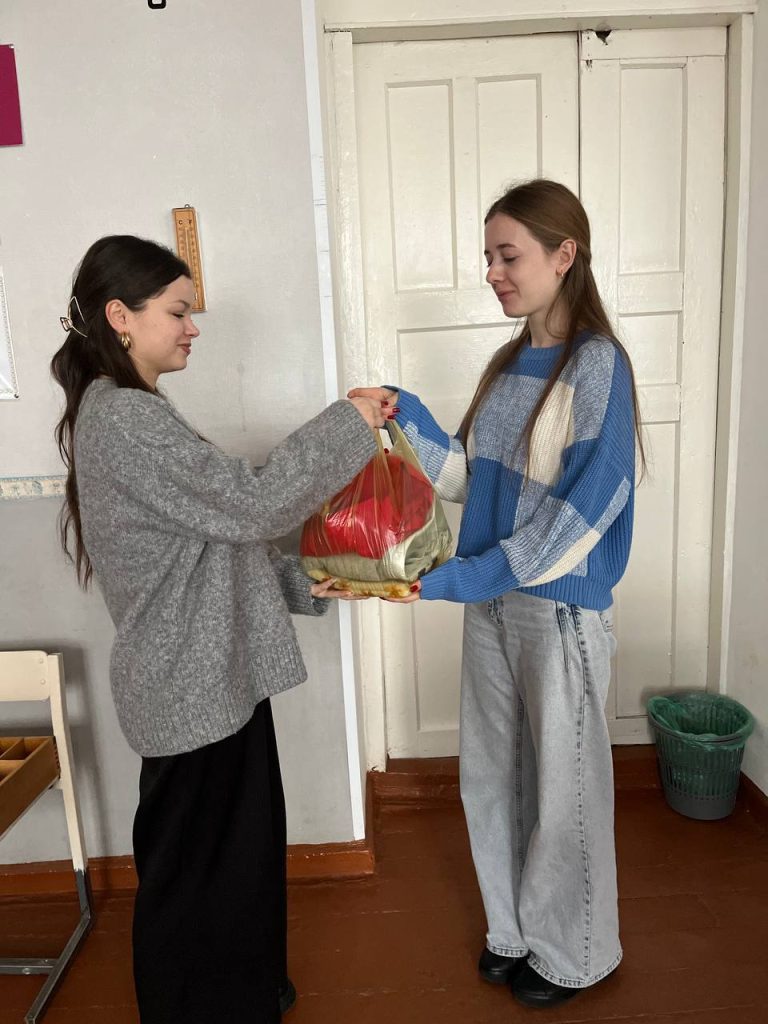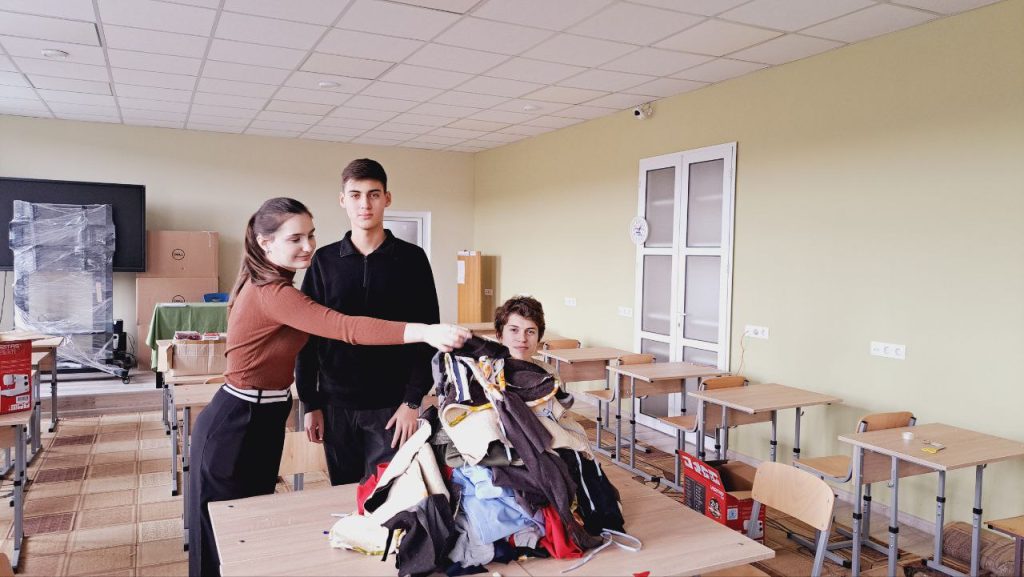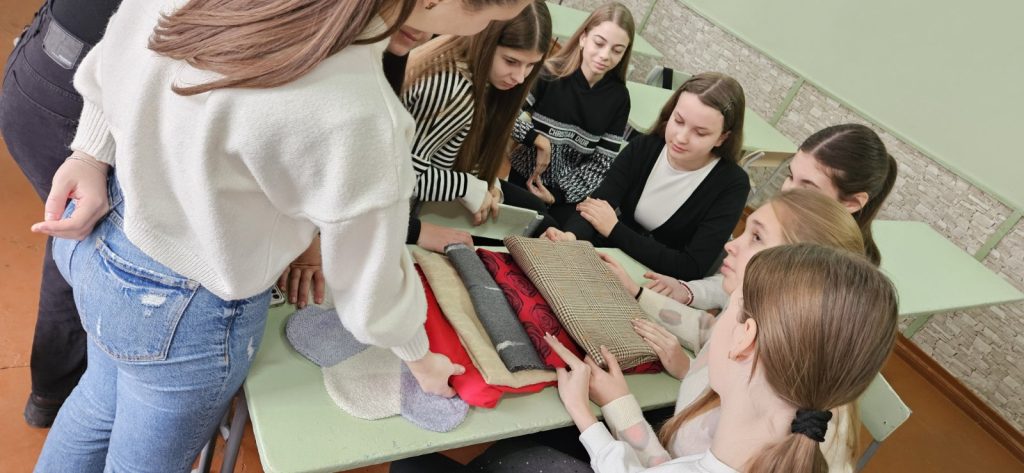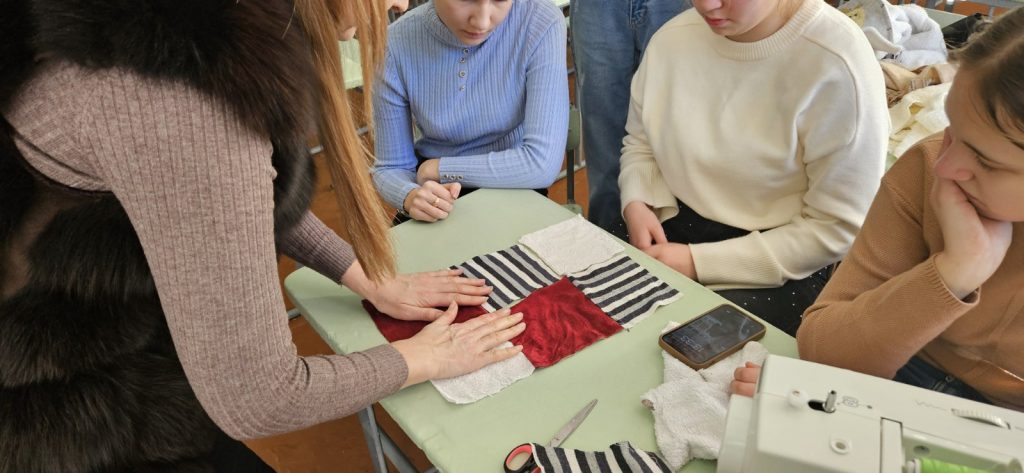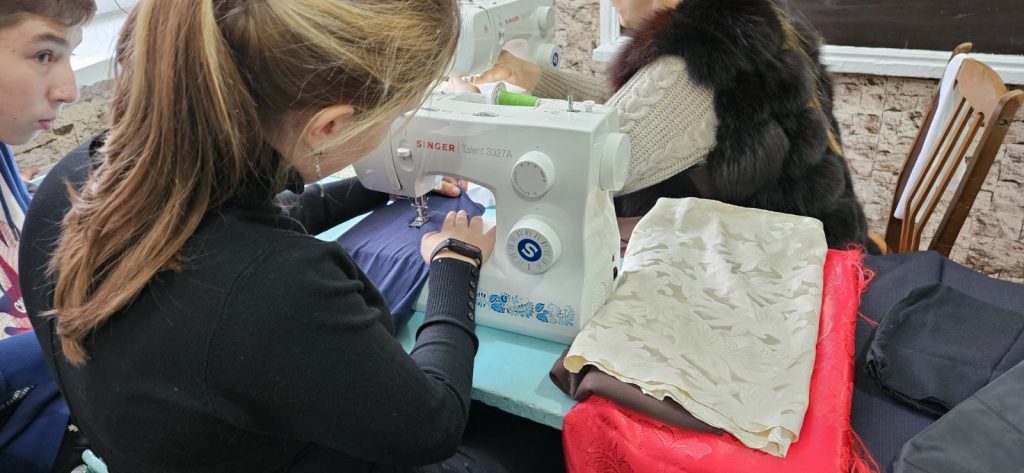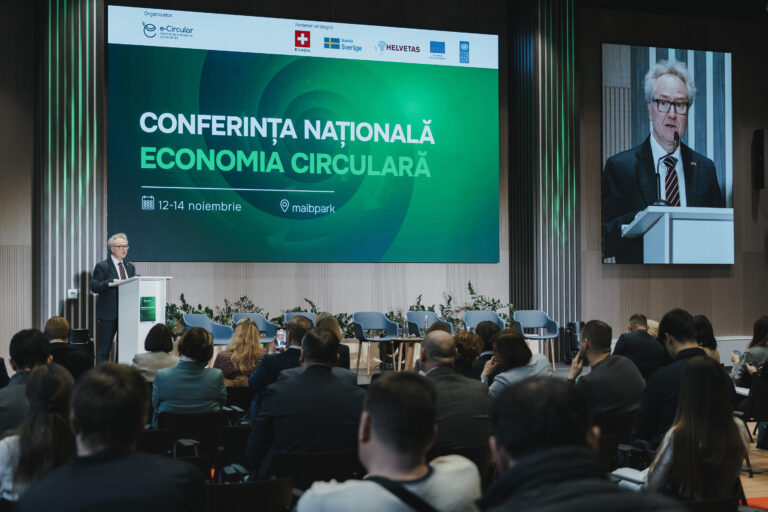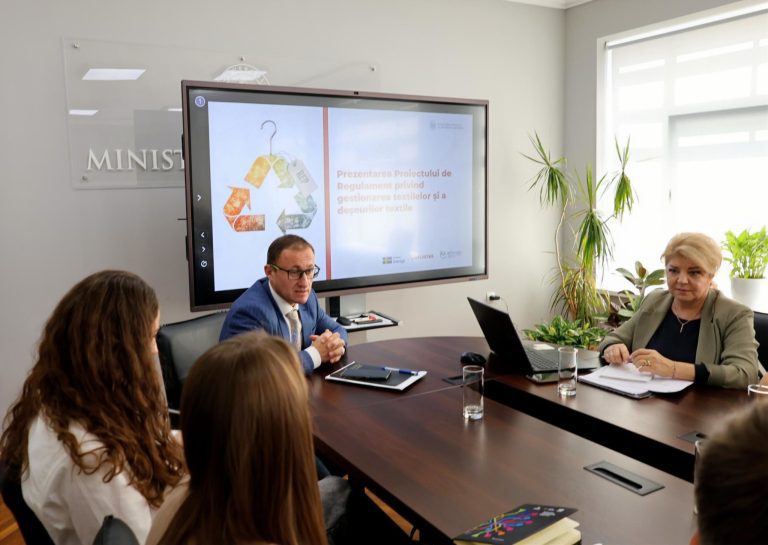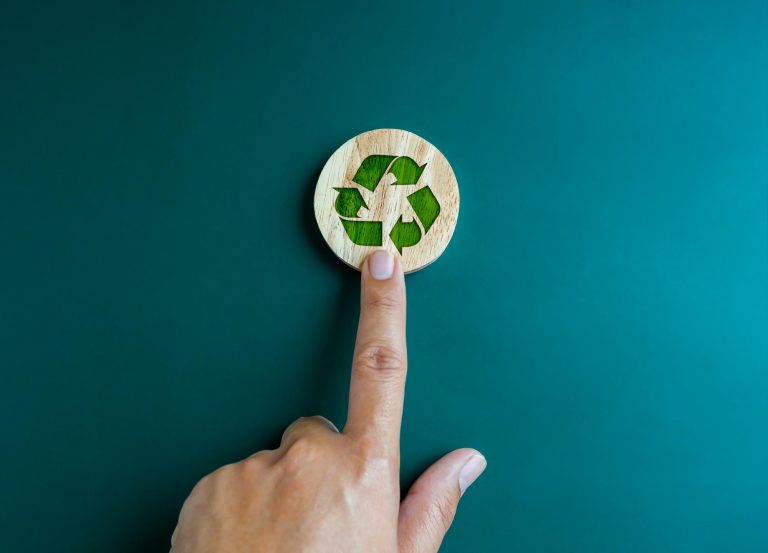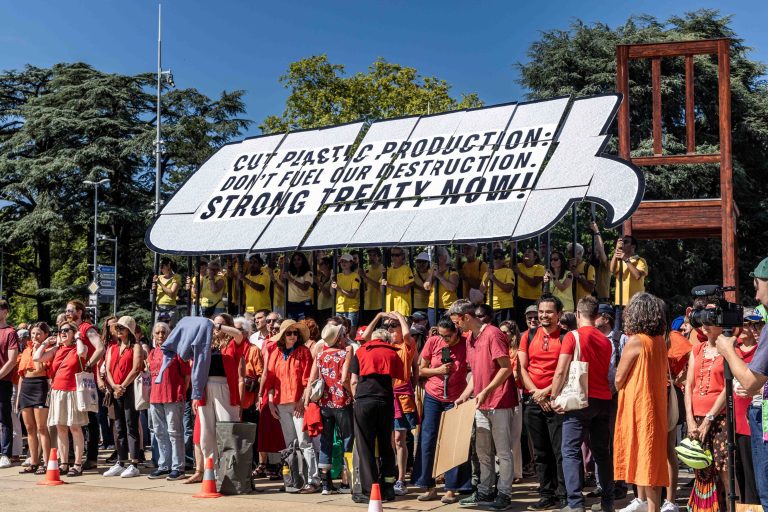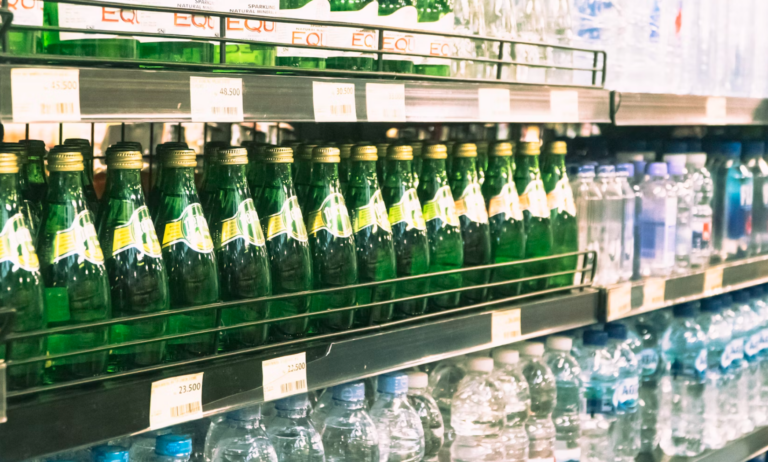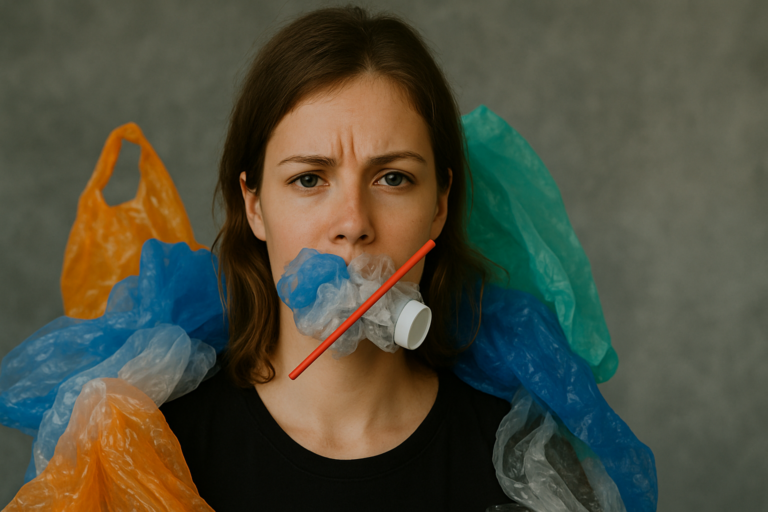Ecological education through needle and thread: 10 schools in Moldova give new life to old clothes
Details
We’ve gotten used to throwing things away and forgotten how to repair, reuse, and extend the lifespan of the items we wear and use!
In a world of fast consumption, it’s becoming increasingly easier to buy something new than to transform something old. But this is exactly where the solution to reducing textile waste pollution begins: REUSE AND REPAIR.
These principles formed the foundation of a sustainable and creative initiative that is part of the project “Strategic Communication on Waste Management”, implemented by EcoVisio and E-Circular and funded by Sweden. At the end of 2024, 10 educational institutions from the project’s target regions were equipped with sewing machines with the aim of promoting the creative reuse of textile waste and encouraging sustainable habits among young people as well as within the broader community in the beneficiary localities.
In the first stage, under the guidance of teachers and with the involvement of students, the schools organized hands-on workshops where old clothes and fabrics were transformed into new and useful products. Among the main creations were chair cushions, bags and pouches, themed costumes, toys, decorations, as well as activities focused on repairing worn-out clothing.
Students use the sewing machines on a weekly basis, and interest in textile reuse activities continues to grow. In some schools, children even come outside of class hours to sew or learn new techniques. Teachers have noted that these activities help students develop creativity, environmental responsibility, and practical skills for everyday life.
“The school’s motivation for establishing this creative reuse workshop lies in the desire to combine practical education with a stronger sense of environmental responsibility. The workshop offers students the opportunity to learn valuable skills such as sewing, fashion design, and artistic creativity, while also contributing to the reduction of textile waste through the reuse of old clothes. This project will encourage students to become aware of the environmental impact of overconsumption and will inspire them to seek sustainable solutions in their everyday lives. Moreover, promoting recycling and refurbishing within the school community will help educate young people in the spirit of ecological values and the circular economy. This workshop will serve as a space for collaboration between students, teachers, and parents, fostering a sense of social responsibility and creativity in a hands-on environment,” ChatGPT said: Natalia Dobrota, Lingura commune, Cantemir district
“Reducing textile waste by transforming it into covers and/or mats for school furniture, such as children's chairs, under the theme ‘Creative Recycling,’ is the idea we are promoting among children. This initiative is especially relevant because, during winter, the temperature in the institution is quite low (16–17°C). By implementing this project, we have the opportunity to create identical seat covers for each group (kindergarten) and class (using textiles collected through a used clothing donation campaign), with the possibility to personalize them. In the same spirit of waste reduction, we also encourage both staff and children to use glass bottles for drinking water (as we do not have access to potable water in the institution). However, glass containers often break and become waste, which is why we have come up with a more durable solution—by making bottle covers to help extend their usage.” – Andriana Petriciuc, Buciumeni village, Ungheni district
All ten schools have expressed interest in developing a textile repair center within their institutions. These centers could become community spaces where clothes are repaired, sewing skills are taught, and custom-made products are created. In some cases, teachers suggest involving support staff and volunteers to ensure the sustainability of these activities.
Proiectul demonstrează că educația ecologică poate avea un impact concret și durabil atunci când este integrată cu activități creative și utile. Școlile au arătat nu doar entuziasm, ci și potențial pentru a deveni hub-uri locale de economie circulară, contribuind la reducerea deșeurilor textile și la formarea unei noi generații de consumatori responsabili.
În vedere dezvoltării acestei inițiative, în perioada următoare cu suportului RECONOMY Program a number of these educational institutions/youth centers will be equipped with specialized sewing equipment and materials, including a series of hands-on workshops with industry experts, aimed at strengthening the capacity of teachers to promote these practices. și de a integra principiile economiei circulare în procesul educațional formal și non-formal. Through this hands-on approach, students and young people will have the opportunity to develop valuable skills for the future – from repair and reuse to sustainable design and responsible entrepreneurship.
The initiative thus contributes to the creation of a network of pilot institutions that can serve as replicable models at the national level, supporting the transition toward a more sustainable society and reducing the pressure on natural resources.
In the long term, these actions will foster a shift in mindset, encouraging a culture of responsibility and active engagement in addressing environmental issues, starting at the level of local communities.
Related articles
E-Circular anunță că este partener media al KEY ENERGY 2026, una dintre cele mai importante expoziții
Un nou studiu internațional oferă cea mai cuprinzătoare imagine de până acum asupra ocupării forței de
Cea de-a III-a ediție a Conferinței Naționale „Economia Circulară în Republica Moldova”, organizată în perioada 12–14
La data de 26 septembrie, Ministerul Mediului în parteneriat cu A.O. Centrul de instruire și consultanță
Unul dintre indicatorii Eurostat utilizați pentru a evalua progresul în atingerea Obiectivului de Dezvoltare Durabilă SDG
Este timpul pentru acțiuni decisive: societatea civilă cere un Tratat Global ambițios care să pună capăt
La Geneva, se negociază începînd cu 5 august un acord ONU împotriva deșeurilor din plastic. Blocajul:
Centrul de Instruire și Consultanță „E-Circular” anunță lansarea apelului pentru contribuții științifice în cadrul Conferinței Naționale
Reacțiile la studiul publicat recent de Agenția Franceză pentru Siguranța Alimentelor, Mediului și Sănătății Ocupaționale (ANSES)
De ani de zile, marcăm simbolic Ziua Mediului, vorbim despre reducerea poluării cu plastic, venim cu

